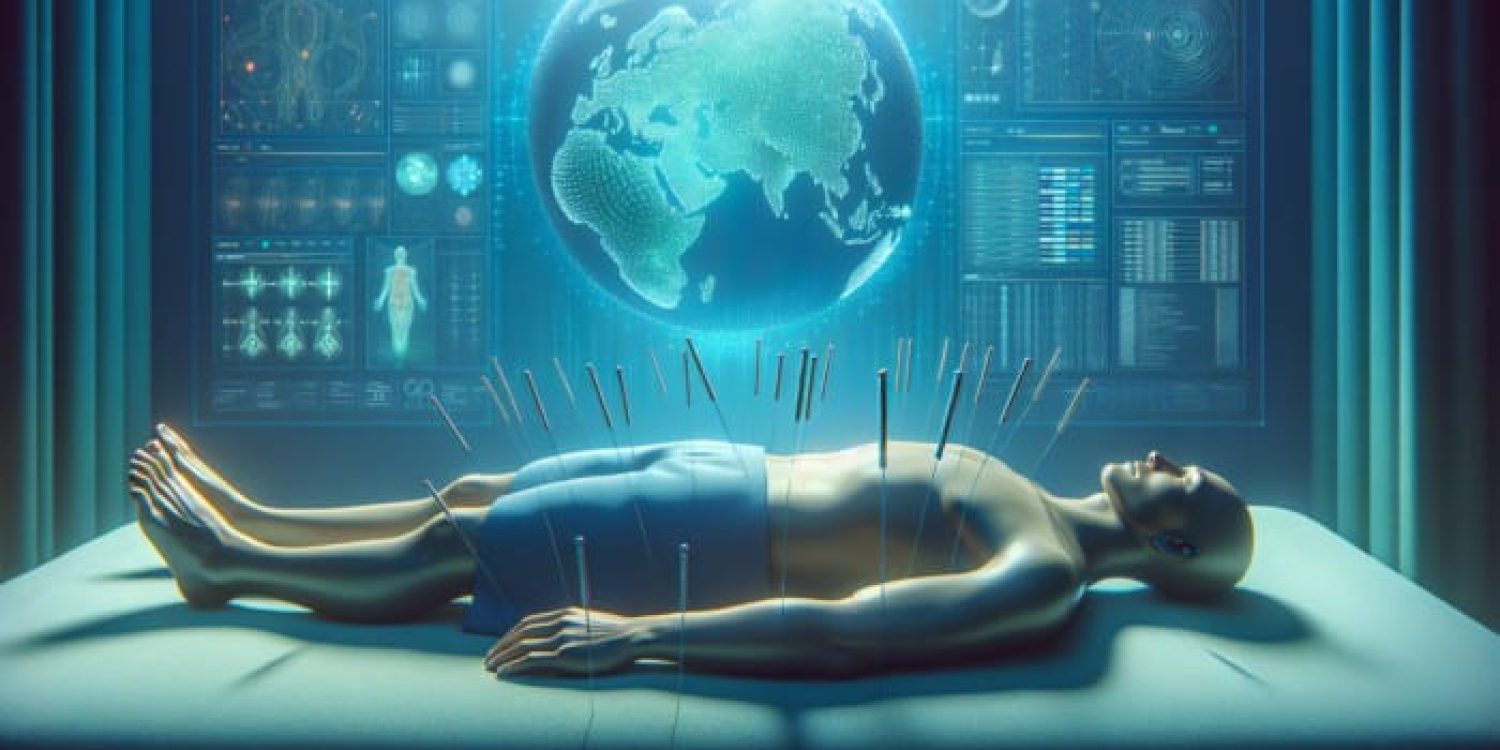Unlocking the Benefits of Acupuncture for IBS Symptoms
Acupuncture for IBS symptoms has emerged as an increasingly recognized and effective therapeutic approach for individuals grappling with the challenges of this often debilitating disorder. To truly harness the potential of Irritable Bowel Syndrome (IBS), it is vital to explore its multifaceted symptoms and the various triggers that may exacerbate these issues. Understanding these complexities allows for a more comprehensive perspective on how acupuncture can play a critical role in alleviating physical discomfort and enhancing overall well-being.
Comprehensive Insight into IBS: Identifying Symptoms and Triggers

IBS is a chronic gastrointestinal disorder characterized by a range of distressing symptoms. These shared symptoms may include abdominal cramping, persistent bloating, excessive gas, and irregular bowel habits such as constipation or diarrhoea. The intensity of these symptoms can vary significantly, often making daily life and social interactions challenging. Recognizing and identifying personal triggers is essential for effective management. Frequent culprits include specific dietary choices, emotional stress, hormonal fluctuations, and broader lifestyle habits.
Many individuals suffering from IBS find that certain foods can aggravate their symptoms. Common triggers often include high-fat foods, dairy products, and grains that contain gluten. Emotional factors such as stress and anxiety can also have a significant impact on gut health, leading to heightened symptoms. By pinpointing these triggers, patients can take proactive steps to manage their IBS effectively while also exploring complementary therapies like acupuncture for IBS symptoms to improve their quality of life.
Understanding the Mechanism Behind Acupuncture
Acupuncture is rooted in the ancient principle of balancing the body's energy, referred to as ‘Qi'. This holistic treatment modality seeks to restore harmony by stimulating specific points across the body, encouraging natural healing processes. For those suffering from IBS, acupuncture can be instrumental in regulating gastrointestinal function, alleviating pain, and mitigating stress—all of which contribute to effective symptom management.
The process involves carefully inserting ultra-fine needles into designated acupuncture points, which can positively influence the nervous system and gastrointestinal tract. This targeted stimulation may trigger the release of endorphins and other neurochemicals, fostering a sense of relaxation and well-being. Many patients report noticeable improvements in their symptoms, underscoring the significant impact of acupuncture for IBS symptoms on both physical and emotional health status.
Evidence-Based Research Supporting Acupuncture for IBS Management
A wealth of studies has been conducted to assess the effectiveness of acupuncture in treating IBS. Clinical trials have consistently demonstrated that patients receiving acupuncture report marked reductions in symptom severity compared to those receiving standard care or placebo treatments. One meta-analysis highlighted that acupuncture could significantly alleviate abdominal pain while enhancing overall bowel function.
In addition, acupuncture's non-invasive nature makes it an appealing alternative to pharmaceutical treatments, which often carry a risk of side effects. As acceptance of this practice grows within the medical community, acupuncture is increasingly recognized as a legitimate and valuable option for managing IBS, aligning perfectly with modern healthcare trends that emphasize a patient-centred approach.
Practical Steps for Utilizing Acupuncture for IBS Symptom Relief

The practical application of acupuncture for IBS symptoms encompasses several vital components, from locating a qualified practitioner to understanding the expectations for a treatment session. Each of these steps is instrumental in maximizing the overall effectiveness of the acupuncture experience.
How to Identify a Qualified Acupuncturist
When pursuing acupuncture treatment for IBS, selecting a qualified practitioner is paramount. Seek out licensed acupuncturists with a robust background in treating gastrointestinal disorders. Professional credentials ensure that practitioners adhere to established safety protocols and ethical guidelines.
Many acupuncturists specialize in IBS treatment, so seeking referrals from healthcare providers or support groups can be beneficial. A knowledgeable acupuncturist will customize treatment plans based on your unique symptoms and triggers, significantly enhancing the efficacy of acupuncture for IBS symptoms. A comprehensive consultation will enable the practitioner to assess your health history and formulate a tailored approach to your care.
Anticipating the Experience During an Acupuncture Session
Understanding what to expect during an acupuncture session can help alleviate apprehension and improve the overall experience. Typically, a session lasts 30 to 60 minutes, beginning with discussing your specific symptoms and medical history. The acupuncturist will then identify the appropriate points to focus on based on your condition.
During the treatment, needles are inserted into the skin at varying depths, which may cause minimal discomfort. Many patients report feeling a deep sense of relaxation as their body responds to the stimulation. Following the session, patients often experience a calm sensation and may notice a decrease in IBS symptoms, demonstrating the restorative power of acupuncture for IBS symptoms.
Complementing Acupuncture with Other IBS Management Strategies

Acupuncture should be regarded not as a standalone treatment but as a complementary therapy that can enhance the effectiveness of other IBS management strategies. By integrating acupuncture with dietary changes, stress reduction techniques, and medication, patients can adopt a holistic approach to achieving symptom relief.
For example, following a low FODMAP diet—designed to minimize fermentable carbohydrates—alongside acupuncture may improve outcomes. Moreover, combining acupuncture with mindfulness practices and relaxation techniques can address the psychological components of IBS, which can significantly contribute to the overall symptoms experienced. This integrative strategy maximizes the benefits of acupuncture for IBS symptoms while fostering a more comprehensive management plan for the condition.
Sharing Personal Experiences with Acupuncture for IBS Relief
Personal narratives and testimonials from individuals who have benefited from acupuncture for IBS symptoms can provide invaluable insights. These real-life accounts demonstrate the tangible improvements that can arise from this ancient therapeutic practice.
Case Studies: Transformative Success Stories
Numerous individuals have turned to acupuncture as a last resort after exhausting conventional treatment options. Case studies reveal that many patients report remarkable enhancements in their quality of life. For instance, one patient, after enduring years of debilitating symptoms, found significant relief after undergoing a series of acupuncture sessions. They noted a drastic reduction in abdominal pain and bloating, allowing them to engage in activities they once cherished.
These success stories illuminate acupuncture's potential as a credible treatment for IBS, offering hope to those who might feel disheartened by their condition. The narratives not only highlight the efficacy of acupuncture for IBS symptoms but also cultivate a sense of community among individuals facing similar struggles.
Documenting the Journey: Before and After Acupuncture Treatment
Many patients choose to document their experiences before and after receiving acupuncture for IBS. Typically, they observe a notable reduction in abdominal discomfort, improved digestive function, and overall well-being. Such improvements are frequently accompanied by lower levels of anxiety and stress, reinforcing the mind-body connection in IBS management.
These transformative experiences serve as powerful testimonials to the efficacy of acupuncture. Patients often express gratitude for regaining control over their symptoms and overall lives, showcasing how acupuncture for IBS symptoms can lead to profound and positive changes.
Insights from Experts on Acupuncture's Role in IBS Management
Healthcare professionals increasingly acknowledge the benefits of acupuncture as an integral part of a comprehensive IBS management strategy. Experts assert that while acupuncture may not be a definitive cure for IBS, it can play a crucial role in alleviating symptoms and enhancing overall gut health.
Acupuncturists emphasize the necessity of personalized treatment plans tailored to each patient's unique experiences and triggers. Collaborative strategies incorporating conventional and alternative therapies are often recommended, highlighting the importance of a well-rounded treatment approach. This growing recognition of acupuncture for IBS symptoms within the medical field reflects a shift towards more integrative healthcare practices.
Addressing Common Concerns About Acupuncture for IBS
As with any therapeutic approach, individuals contemplating acupuncture for IBS symptoms may have concerns. Addressing these prevalent questions empowers patients to make informed decisions regarding their health and wellness.
Assessing the Safety of Acupuncture for IBS Patients
Safety is a primary consideration for anyone contemplating acupuncture. When performed by a certified practitioner, acupuncture is generally considered safe for individuals with IBS. However, sharing your complete medical history and ongoing treatments with your acupuncturist is crucial. This transparency allows them to customize treatment to your needs, minimizing potential complications.
While adverse effects are rare, some patients may experience minor bruising or soreness at the needle insertion sites. Awareness of these potential risks enables patients to approach acupuncture confidently, recognizing it as a beneficial addition to their IBS management regimen.
Understanding the Timeline for Results from Acupuncture
The timeframe for experiencing benefits from acupuncture for IBS symptoms can vary significantly among individuals. Some may find immediate relief following their first session, while others may require multiple treatments to observe substantial changes. Factors influencing this timeline include the severity of symptoms, the individual's overall health, and the frequency of sessions.
It is important to maintain open communication with your acupuncturist regarding your progress. They can modify treatment plans to optimize results, ensuring you receive the most effective care possible.
Can Acupuncture Provide a Complete Cure for IBS?
While numerous patients achieve significant relief from their IBS symptoms through acupuncture, it is essential to recognize that it may not serve as a complete cure. RathInsteadupuncture can manage and mitigate symptoms' severity, ultimately leading to an enhanced quality of life. This treatment is often most effective when combined with other lifestyle adjustments and therapies.
Ultimately, many patients discover that regular acupuncture sessions, coupled with dietary modifications and stress management strategies, offer a sustainable approach to living with IBS. This holistic perspective positions acupuncture as a valuable asset in the ongoing management of IBS symptoms rather than as a singular solution.
Enhancing Your Lifestyle with Acupuncture for IBS Management
Integrating acupuncture for IBS symptoms into your daily life can contribute to a more balanced and healthier existence. Beyond treatment, various complementary strategies can amplify the overall effectiveness of acupuncture.
Nutrition Strategies to Enhance Acupuncture Benefits
Diet plays a pivotal role in managing IBS, and when combined with acupuncture, dietary changes can lead to substantial improvements. Many practitioners recommend adopting a low FODMAP diet, which entails cutting back on fermentable carbohydrates that can provoke symptoms. This dietary approach can be synergized with acupuncture, which may assist in regulating digestive functions.
Incorporating anti-inflammatory foods, such as omega-3-rich fish, leafy greens, and whole grains, can further bolster gut health. A food diary can also identify individual triggers, enabling personalized dietary modifications complementing acupuncture treatments.
Implementing Stress Management Techniques for IBS Relief
Stress is a recognized exacerbator of IBS symptoms, making effective stress management a critical component of treatment. Techniques such as mindfulness meditation and deep-breathing exercises can significantly enhance the benefits of acupuncture. By actively reducing stress, individuals often experience a decrease in the severity of their symptoms.
Acupuncture can be a powerful stress relief, fostering relaxation and tranquillity. By integrating these practices into daily routines, patients can create a supportive environment for healing, allowing them to navigate their IBS journey with greater ease.
Incorporating Regular Exercise for IBS Symptom Management
Engaging in consistent physical activity benefits overall health and plays a crucial role in alleviating IBS symptoms. Exercise promotes healthy digestion and can help lower stress levels, addressing two significant factors associated with IBS. Activities such as yoga, walking, and swimming are often recommended due to their gentle yet effective impact on the body.
Combined with acupuncture, regular exercise can enhance symptom management, empowering individuals to take charge of their health. Whether participating in group classes or personal workouts, discovering enjoyable physical activities can contribute to a fulfilling lifestyle while managing IBS effectively.
Exploring Diverse Acupuncture Techniques for IBS Relief
The realm of acupuncture encompasses various techniques that can be tailored to address IBS symptoms effectively. Understanding these options can empower individuals to select the best approach to their needs.
Differentiating Between Traditional Chinese Medicine and Western Acupuncture
Traditional Chinese Medicine (TCM) and Western acupuncture share foundational principles but differ in their methodologies. TCM approaches IBS through the lens of energy balance and organ systems, aiming to restore harmony within the body. Treatments often combine herbal remedies and lifestyle modifications alongside acupuncture.
Conversely, Western acupuncture tends to emphasize the physiological aspects of the body. Practitioners may focus on treating specific symptoms and conditions using evidence-based methodologies. Understanding these distinctions allows patients to choose the method that resonates with their beliefs and treatment objectives, making acupuncture for IBS symptoms flexible and adaptable.
Electroacupuncture: An Enhanced Treatment Option
Electroacupuncture represents an advanced technique that merges traditional acupuncture with electrical stimulation. This innovative method may provide additional benefits, particularly for patients experiencing chronic pain or severe IBS symptoms. Practitioners can amplify stimulation at targeted points by applying a mild electrical current to the acupuncture needles.
Research indicates that electroacupuncture can enhance the release of endorphins, resulting in greater pain relief and improved gastrointestinal function. This progressive approach may be especially advantageous for those seeking more intensive treatment options for their IBS, further solidifying acupuncture as a versatile tool in symptom management.
Auricular Acupuncture: Targeted Treatment for IBS
Auricular or ear acupuncture is a specialized practice that focuses on specific points in the ear believed to correspond with various organs and systems within the body. This method has proven particularly effective for managing pain, anxiety, and digestive issues, making it a valuable option for IBS patients.
Research suggests that auricular acupuncture can markedly reduce IBS symptoms, mainly when used in conjunction with other treatments. Its non-invasive nature and convenience make it an attractive choice for many individuals seeking relief from their symptoms. By focusing on the ear, practitioners can enhance the overall effectiveness of acupuncture for IBS symptoms and deliver a targeted treatment approach.
Future of Acupuncture for IBS: Trends and Research Advances
As interest in acupuncture continues to rise, ongoing research is illuminating its potential advantages for managing IBS symptoms. Understanding these emerging trends can keep patients informed about the prospects of this treatment modality.
Current Studies and Clinical Trials Exploring Acupuncture for IBS
A multitude of clinical trials are underway to evaluate the efficacy of acupuncture in treating IBS. These studies aim to establish optimal treatment protocols, identify specific patient demographics that may benefit most, and investigate the underlying mechanisms through which acupuncture alleviates symptoms. Staying informed about these developments empowers patients to make educated decisions about incorporating acupuncture into their wellness journey.
As research continues to affirm the effectiveness of acupuncture for IBS, more healthcare professionals will likely begin to endorse this treatment as a viable option, thereby broadening access for patients in search of relief.
Technological Innovations in Acupuncture Treatments
Technological advancements are enhancing the precision and effectiveness of acupuncture treatments. New tools like digital acupuncture needles and sophisticated diagnostic techniques enable practitioners to tailor treatments effectively. These innovations may improve effectiveness and patient satisfaction, reinforcing acupuncture's role in managing IBS symptoms.
As technology evolves, patients can anticipate more personalized and effective acupuncture experiences, making it an even more appealing option for managing IBS.
The Growing Role of Acupuncture in Holistic Health Approaches
Acupuncture is increasingly recognized as a vital component of holistic health strategies. As healthcare practices shift towards more integrative approaches, a collaboration between conventional medicine and alternative therapies like acupuncture is gaining traction. This trend reflects a broader understanding of health that encompasses physical, mental, and emotional well-being.
As patients seek comprehensive solutions for managing their IBS, acupuncture stands out as a holistic option that addresses multiple facets of health. This recognition underscores the importance of considering acupuncture for IBS symptoms as part of a balanced and proactive health and wellness strategy.
Frequently Asked Questions About Acupuncture
What is acupuncture?
Acupuncture is a practice rooted in traditional Chinese medicine that involves inserting fine needles into specific points on the body to stimulate energy flow and promote healing.
How does acupuncture alleviate IBS symptoms?
Acupuncture aids in regulating gastrointestinal function, alleviating pain, and reducing stress, all of which are essential for effectively managing IBS symptoms.
How many acupuncture sessions are typically needed for IBS relief?
The number of sessions required varies by individual, but many patients benefit from a series of treatments over several weeks to achieve optimal results.
Is acupuncture painful?
Most patients report minimal discomfort during acupuncture, as the needles are exceptionally fine. Many experience a sensation of relaxation during the treatment process.
Can I continue taking my regular medications while receiving acupuncture?
Yes, many patients continue their medications while undergoing acupuncture. However, discussing this with your healthcare provider and acupuncturist is vital.
Can acupuncture cure IBS entirely?
While acupuncture may not wholly cure IBS, it significantly manages and reduces the severity of symptoms, enhancing the quality of life.
Are there any side effects associated with acupuncture?
Side effects are rare but can include minor bruising or soreness at needle insertion sites. It is advisable to discuss any concerns with your acupuncturist beforehand.
How can I find a qualified acupuncturist?
Seek licensed practitioners with experience in treating IBS. Recommendations from healthcare professionals or reputable organizations can also be beneficial.
Can acupuncture be used alongside other IBS treatments?
Yes, acupuncture can complement other treatments, such as dietary changes and medications, to create a more holistic approach to managing IBS.
What should I expect during my initial acupuncture session?
During your first session, expect to discuss your symptoms and medical background. The acupuncturist will then insert needles at targeted points, typically lasting between 30 to 60 minutes.


























7 Comments
Your exploration of acupuncture as a therapeutic approach for IBS symptoms really highlights the need to consider alternative treatments in managing chronic conditions. Personally, I’ve found that the journey with IBS can often feel isolating, especially when the symptoms fluctuate unpredictably. It’s interesting to see how acupuncture not only targets physical discomfort but might also address the emotional and psychological aspects often linked with IBS.
It’s fascinating how acupuncture is gaining traction as a complementary approach for managing IBS symptoms. I’ve personally found that integrating alternative therapies, like acupuncture, into a broader health strategy—such as dietary adjustments and mindfulness—can create a holistic way to address such complex issues. It really highlights the importance of individualizing treatment for conditions like IBS, where triggers can vary so widely from person to person.
It’s great to see your experience reflected in the conversation about acupuncture and IBS. You’re spot on about how crucial it is to personalize treatment plans for such multifaceted conditions. Each person’s body responds differently not just to traditional treatments but also to alternative ones like acupuncture. The way our bodies process stress, food, and even the little changes in our environments can create very different experiences for each individual with IBS.
Your exploration of acupuncture as a therapeutic option for IBS really resonates with me. I’ve been living with IBS for years and have tried numerous treatments, but I found acupuncture to be particularly intriguing after reading some studies on its efficacy. There’s something so holistic about the practice—it feels like it addresses the mind-body connection that many traditional treatments can overlook.
Your insights into the benefits of acupuncture for IBS symptoms are both comprehensive and enlightening, particularly in light of the growing interest in integrative approaches to healthcare. Having personally experienced the complexities of IBS, I can attest to the significant impact that exploring various therapies has had on my management of the disorder.
I really appreciated this exploration of acupuncture’s potential benefits for IBS. It’s such a complex and often misunderstood condition, and I’ve seen first-hand how frustrating it can be for those who experience its symptoms. I remember when a close friend of mine first started dealing with IBS—it was almost like watching a shadow of the person I knew fade away because she was so affected by abdominal pain and unpredictability.
Your exploration of acupuncture as a therapeutic option for IBS resonates deeply with me, especially considering how frustrating this condition can be for so many. I’ve had my own journey with IBS, which has made me acutely aware of the various triggers and symptoms you described. While traditional treatments like dietary adjustments and medication play their roles, I’ve noticed that holistic approaches like acupuncture can provide a unique layer of relief that’s often overlooked.